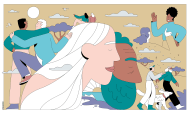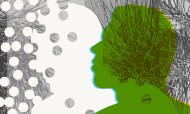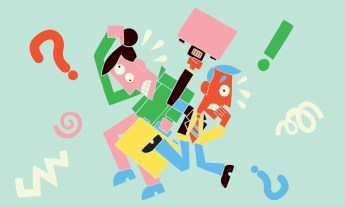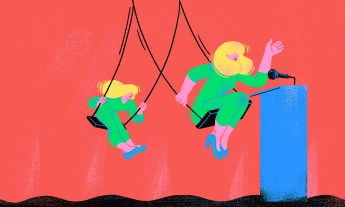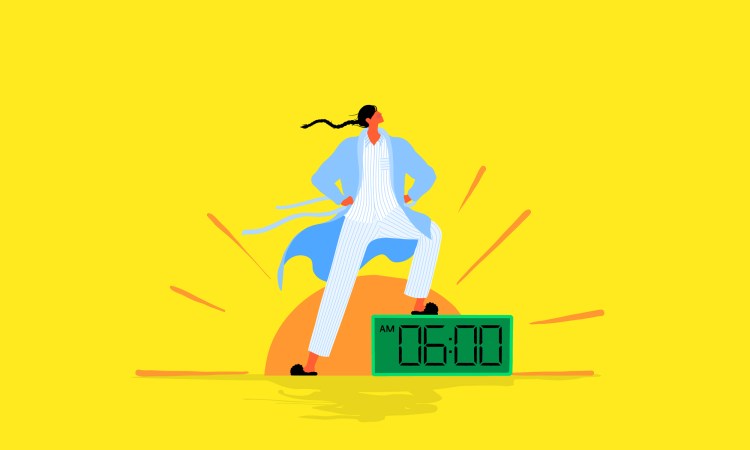
Most of us have been in its grip before — the alarm goes off, our mind starts whirring away, and before we know it, we’ve done a freefall into worry. Neuroscientist Lisa Feldman Barrett has been there, too, and she tells us how we can stop the spiral.
This post is part of TED’s “How to Be a Better Human” series, each of which contains a piece of helpful advice from someone in the TED community. To see all the posts, go here.
How often does this happen to you?
“You wake up, and as you’re emerging into consciousness, you feel this horrible dread, this real wretchedness. Immediately, your mind starts to race,” says neuroscientist Lisa Feldman Barrett. “You think about all the crap that you have to do at work — you have that mountain of email which you will never dig yourself out of, the phone calls you have to return, and that important meeting across town. You’re going to have to fight traffic, you’ll be late picking your kids up, your dog is sick, and what are you going to make for dinner? Oh my God. What is wrong with my life?”
OK, you may not have the dog, the kids or the meeting across town, but what about the rest — the cascading catalog of to-dos, the sinking feeling that you’re behind even before your day has started, and the headlong tumble into despair?
Whew.
According to Barrett, those last two sentences of the above scenario — the “Oh my God. What is wrong with my life?” part — are especially treacherous. Why? Because too often we come to the sweeping and inaccurate conclusion that our life stinks.
But we don’t have to take this misery lying down, says Barrett. Through her research at the Affective Science Laboratory at Northeastern University in Boston, she has come to some mind-shaking realizations about human emotions. Contrary to what many of us think, our emotions are neither hard-wired into our brains nor are they out of our control. Instead, our emotions are guesses that our brains generate on the fly, based upon our past experiences.
As she explains in her book How Emotions Are Made — read an excerpt here — “Anytime you feel miserable, it’s because you are experiencing an unpleasant effect due to physical sensations. Your brain will try to predict causes for those sensations, and the more concepts you know and the more instances you can construct, the more effectively you can recategorize to manage your emotions and regulate your behavior.”
When we start that AM spiral into anxiety, as Barrett explains, “Your brain is searching to find an explanation for those sensations in your body that you experience as wretchedness.” But, she adds, “Those sensations might not be an indication that anything is wrong with your life … Maybe you’re tired. Maybe you didn’t sleep enough. Maybe you’re hungry. Maybe you’re dehydrated.”
So, the next time you feel gripped by morning dread, she suggests you ask yourself: “Could this have a purely physical cause?”
Check in and see: What’s going on with your body? When the alarm went off, were you roused from a deep sleep and you’re rattled as a result? Or, perhaps you’re too hot, too cold, achy or itchy …
Barrett says, “You have the capacity to turn down the dial on emotional suffering and its consequences for your life by learning how to construct your experiences differently.”
Watch her TED@IBM talk here:


